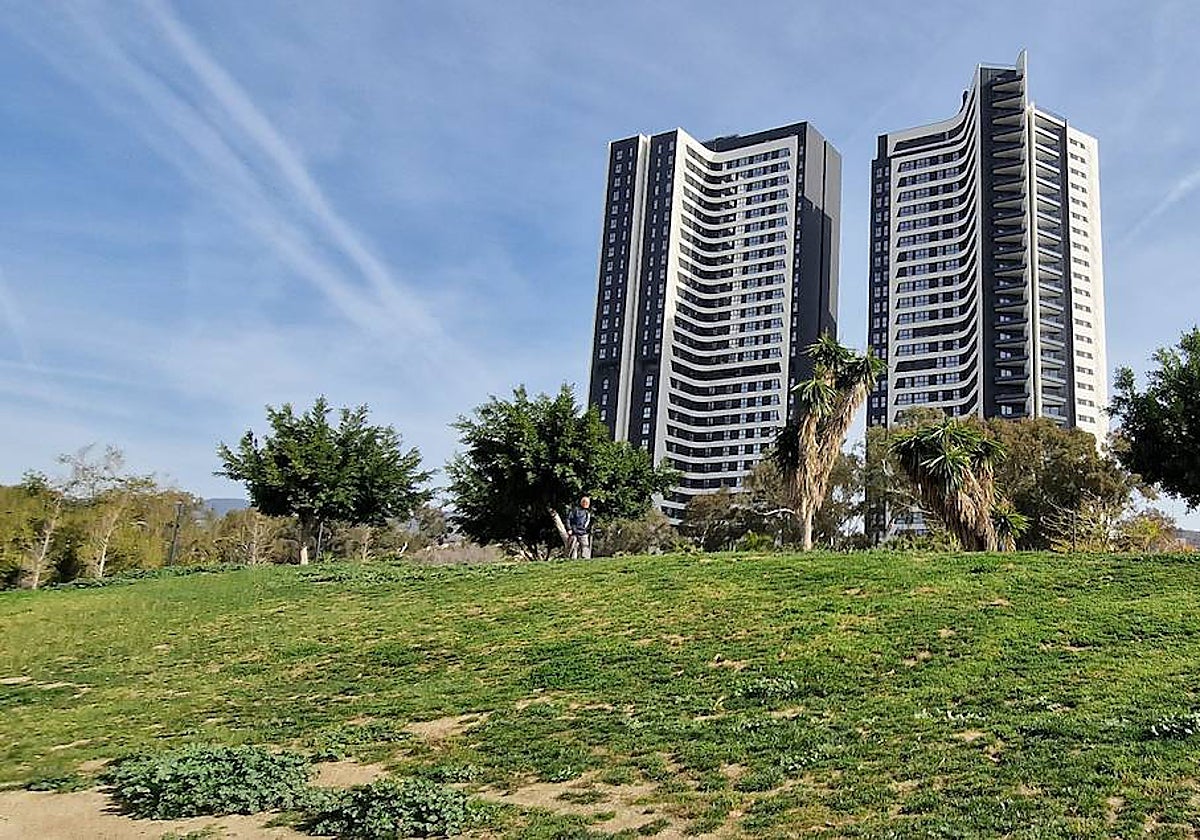Ban on registering new tourist apartments in saturated areas of Malaga will come into force at beginning of December
The city council passed an urgent motion during Monday's planning meeting to modify the urban develoment plan (PGOU) to put a stop to such holiday rentals in these 43 districts
Jesús Hinojosa
Malaga
Tuesday, 19 November 2024, 16:11
Malaga's veto on more holiday rental homes in the city will come into force at the beginning of December. Those in charge of the municipal authority added this item to the agenda as a matter of urgency for the full meeting of the city's urban planning commission held this Monday. The request was for a modification to the PGOU general urban development plan to prevent the registration of new holiday rentals in areas of the city where they represent or exceed 8% of the residential stock. This means that, following this initial approval by committee, the proposal will go forward for approval at this month's meeting of the whole council, scheduled for Thursday next week. Its effects will come into force in early December, as the agreement by city planners includes a precautionary suspension of this type of accommodation for three years in saturated areas.
Therefore, once the agreement of initial approval of this modification of the PGOU by the whole council is published in the Official Provincial Gazette (BOP), a period of three years will begin in which its effects will begin to be applied practically in its entirety. The expectation is that they will already be extended in due course since it is most likely that the ban will receive final approval before those three years have elapsed.
This means that, from the beginning of December, no new tourist flats can be registered in the 43 areas that a study carried out by municipal planners classified as 'saturated' because holiday rentals had exceeded 8% of the residential stock. Likewise, the initial approval of this modification of the PGOU implies the suspension of new tourist flats in another 32 areas at risk of saturation (equal to or higher than 4.53%) if they reach 8% of the proportion of family housing. This change to the PGOU also states that the maximum number of tourist flats in each of the areas investigated will be reviewed one year after the modification comes into force and will then be reviewed thereafter at least every four years, if not sooner.
For now, the areas most saturated with tourist rentals in Malaga (over 8%) are the historic quarter, El Ejido, La Merced, Lagunillas, Capuchinos, El Molinillo, the Ensanche Centro (parks and boulevard near the Guadalmedina river), La Goleta, San Felipe Neri, La Trinidad, Conde Ureña, Cristo de la Epidemia, La Victoria, Ventaja Alta, Campos Elíseos, Cañada de los Ingleses, La Malagueta, Perchel Norte, Plaza de Toros Vieja, El Candado, El Chanquete, the beaches at El Palo, Camino del Colmenar, Peinado Grande, Santa Paula-Miramar, Baños del Carmen, La Viña, Las Acacias, Pedregalejo beach, Torre de San Telmo, Pinares de San Antón, Martiricos, Málaga 2000, Torre del Río, Torres de la Serna, Pacífico, Santa Isabel, Tabacalera, Guadalmar, La Cizaña and the outlying areas of Puerto de la Torre.
However, in the rest of the city's districts the limitation approved by Malaga council last June will remain in force, with retroactive effect from 22 February, so that tourist flats registered since then that do not have independent access and supplies from the residential building in which they are located will have their licences cancelled.
The city's Urbanismo planning department has rejected the counter-arguments presented by the municipal groups of PSOE and Con Málaga regarding this modification of the PGOU to limit tourist accommodation, in which even more restrictive measures were proposed. The PSOE group proposed a moratorium to prevent new tourist flats and to eliminate within 12 months all those that do not have independent access and supplies. However, the ruling party considers that the revocation of these licences for tourist rentals "has legal implications that must be studied quickly, but in depth."
Regulation of tourist flats and hotels
Likewise, in its response to PSOE's counter-proposal, the city council admits that, as reported at the last Mediterranean Real Estate Exhibition, it is carrying out a study to analyse the possible regulation of other tourist accommodation, such as apartment complexes and hotels. A council spokesperson stated that "all categories of accommodation will be reviewed and, in particular, all those that have a greater impact on citizens' access to housing and the habitability of the city."
According to the reply to the socialist group, "this detailed and global analysis could lead to new modifications of the general plan, among which could be the modification of article 6.2.4, with the intention of adding planning actions that promote the balance of uses, the improvement of the urban environment and the life of people as the ultimate aim of urban planning." In other words, Urbanismo is preparing a review of flats and hotels that could also lead to a limitation of these around certain areas of the city, as it is currently doing with individual tourist rentals.
However, the application of this type of limitations will be the responsibility of the Tourism ministry within the Junta. It is Turismo that will have to put in place the necessary means to prevent the registration of more tourist properties in the areas where they are prohibited by Malaga city council from the moment the initial approval of this change in the PGOU is published in the BOP, something that could happen in the first days of December.
